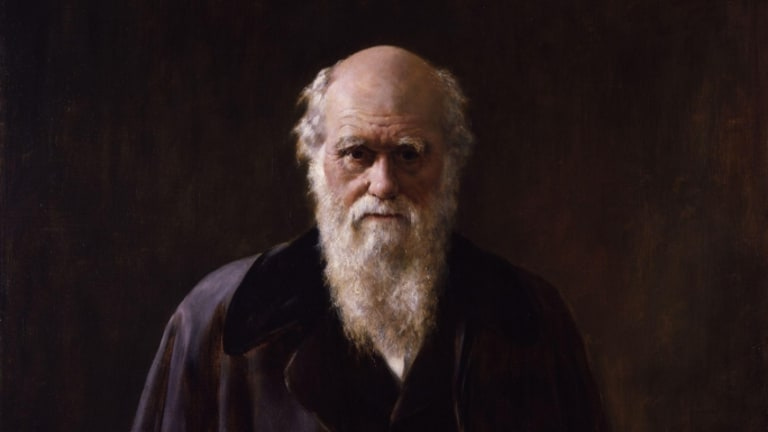Gene-Culture co-evolution was Darwin’s most "dangerous" idea...
In the first instalment of Ideas Loading, a leading bioethicist raises an overlooked existential risk for wealthy liberal societies...
Written by Jonathan Anomaly.
Nearly 30 years ago Daniel Dennett called evolution by natural selection “Darwin’s dangerous idea” because it exploded widely shared assumptions about how the natural world works. In particular, Darwin’s theory implied that we can get the appearance of design without a designer, that we can live in a world without any deep purpose even if our brains are programmed to find purposes behind every pattern.
But like so many contemporary philosophers, Dennett himself shied away from some of the most politically incorrect implications of Darwin’s ideas. In particular, Dennett shuns research that indicates the high heritability of individual and group differences in important psychological traits like intelligence.
Every age has its taboos. But the modern age is unique to the extent that taboos surrounding well-established scientific truths are so pervasive that they threaten human civilization. Taboos surrounding genetic differences emerged immediately after the second world war. Steven Pinker shined a light on this issue in The Blank Slate, Bo Winegard and Noah Carl got fired over their attempts to address this issue head-on, and Joe Henrich has spent his career illuminating how gene-culture co-evolution works, while distancing himself from the implications of his theory for group differences in genetics.
It’s true that culture isn’t always tightly tethered to genes. After all, North and South Koreans behave differently largely because they live under such different political institutions. But generally speaking, genetic differences can help explain cultural differences, and cultures select for specific kinds of genes. To take a recent example, a team of behavioural geneticists found that contemporary British culture selects against proxies for IQ and conscientiousness, such as educational attainment. In other words, smarter people in Britain have fewer kids, on average, than less intelligent people. Prior to the 19th century, as Gregory Clark has shown, selection went in the opposite direction in Britain: in favour of intelligence and other traits needed to thrive in early modern Britain.
Like biological evolution, cultural evolution is an emergent order. It can be nudged in different directions, but nobody controls it. No sane person would design a society that selects against traits like intelligence, conscientiousness, or health. But wealthy liberal societies seem to inadvertently do exactly this. Charles Darwin intuitively recognised the many ways in which culture shapes heritable traits, and how traits shape culture, including the rise and fall of civilisations.
Different people will inevitably disagree about solutions to the problems of Western demographic collapse, and selection against pro-social traits. But it is important to understand how these processes work. Only then can we have an informed discussion about what kinds of societies we wish to construct, and how our social norms and political institutions are more likely to produce particular kinds of people.
If we could implant one idea into everybody's head tomorrow, I propose Darwin’s most “dangerous” idea: that genes and cultures co-evolve. We need to better understand how this process works, and how it affects the rise and fall of civilisations.
Dr Jonathan Anomaly is a leading bioethicist and the author of Creating Future People: The Ethics of Genetic Enhancement.





This is a cool idea! Creating Future People is a wonderful book that I enjoyed a lot. I would recommend it.